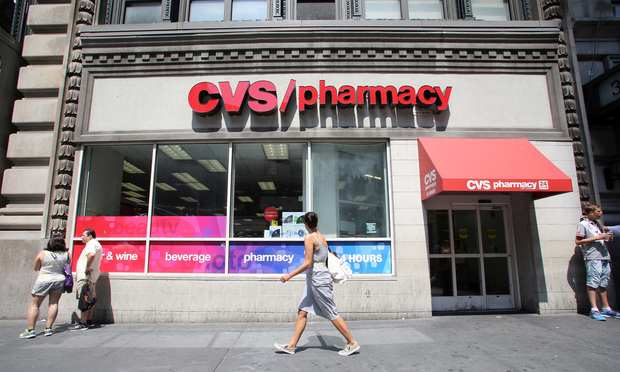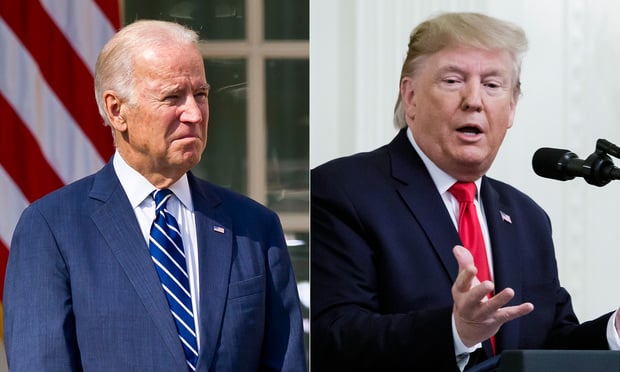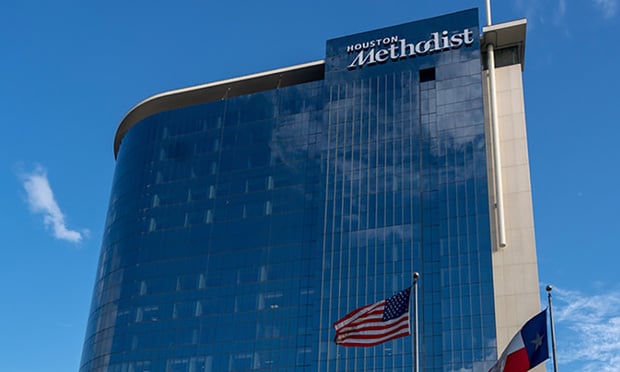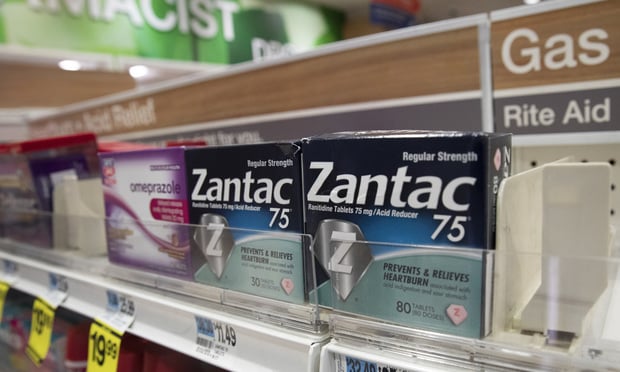 CVS says it canoffer about 80 percent of the services your average primary-carepractice provides, as well as some things that they don't,including urgent care and sleep-apnea screenings. (Photo:Shutterstock)
CVS says it canoffer about 80 percent of the services your average primary-carepractice provides, as well as some things that they don't,including urgent care and sleep-apnea screenings. (Photo:Shutterstock)
Shares of CVS Health Inc. have been battered in recent monthsalong with other health-care companies amidstepped-up scrutiny of the industry's pricing practices and callsfrom lawmakers and the Trump administration to overhaul the currentcomplicated and costly U.S. health system. CVS also has had theadded task of integrating Aetna Inc., the insurer it boughtfor $69 billion in November as part of an ambitious plan totransform itself from a pharmacy giant into a a more completeprovider of health-care services.
|It was against this backdrop, and with CVS's shares down31 percent since completing the Aetna deal, that thecompany held its much-anticipated investor day Tuesday. It markedthe first comprehensive update of CVS post-merger, and was a chancefor management to convince shareholders that the combined companywas up to the challenges ahead and moving in the right direction.Based on the stock's initial positive reaction, investors seem tohave liked what they heard. That upbeat vibe isn't misplaced.
|Related: How broker consolidation and industry alliances arechanging the industry
|CVS's most promising initiative is the rapid expansion of itsnew “HealthHub” store model, which includes substantially morehealth-care services and expanded clinics. At these locations, CVSsays it can offer about 80 percent of the services youraverage primary-care practice provides, as well as some things thatthey don't. This includes everything from traditional urgent careto sleep-apnea screenings.
|The company started the year by opening three HealthHublocations in Houston. It plans to open 1,500 locations by the endof 2021, with the rollout focused on the Philadelphia area, Atlantaand Tampa, Florida, in addition tits initial target market ofHouston. It's a lofty goal and may make hitting its financialtargets that much more difficult, but it's a worthwhile long-terminvestment.
|Transforming standard pharmacies into something more is key tomaking the Aetna purchase pay off. The company's massive physicalreach differentiates it from large rivals like Cigna Inc. andUnitedHealth Group Inc., which also manage both health-insuranceand prescription-drug plans.
|The new services focus in large part on patients with high-costchronic conditions like diabetes. CVS argues that it has anadvantage in reaching what's historically been a tricky andexpensive population. Because it's an insurer, it knows whensomeone is overdue for a diabetes checkup and it can can remindthem when they arrive at the pharmacy counter. CVS can schedule andprovide that appointment, and also can arrange follow-upinterventions like a consultation with a dietician, helpingpatients better adhere to their care plans so they stay healthierand avert the need for costly measures in the future.
|Success would pay off handsomely. Keeping spending in check forpatients with chronic conditions could make Aetna significantlymore profitable and competitive, while revenue from services wouldkeep more health spending profitably in-house and boost thefinancial performance of its stores. That would come in handy amidpricing pressures and Amazon.com Inc's entry into the mail-orderdrug business. The new model also diversifies CVS away from itsprescription-drug plan management business, which has lost businessrecently and is exposed to significant regulatory pressure.
|That isn't to say it will be easy. CVS plans to transform 1,500stores; it currently only has 1,100 locations that even haveclinics, some of which will be expanded. Executives pointed topositive early anecdotes and data, but the combined company isstill young and the cost savings are theoretical. This expansionwon't be cheap, and it will have to be balanced with debt reductionand a target of double-digit earnings growth by 2022.
|Regulatory risk, heightened bipartisan scrutiny and ambitioushealth-reform plans put forth by Democrats have given investorsreason to be antsy; the negative reaction to any failure on CVS'spart to meet expectations will be swift and substantial. Still, thecompany is right to keep pushing forward with its plans. In theend, mild tweaks to the status quo won't be enough to bring downcosts or stand out in a competitive and unstable market.
|Max Nisen ( [email protected])is a Bloomberg Opinion columnist covering biotech, pharma andhealth care. He previously wrote about management and corporatestrategy for Quartz and Business Insider.
Complete your profile to continue reading and get FREE access to BenefitsPRO, part of your ALM digital membership.
Your access to unlimited BenefitsPRO content isn’t changing.
Once you are an ALM digital member, you’ll receive:
- Critical BenefitsPRO information including cutting edge post-reform success strategies, access to educational webcasts and videos, resources from industry leaders, and informative Newsletters.
- Exclusive discounts on ALM, BenefitsPRO magazine and BenefitsPRO.com events
- Access to other award-winning ALM websites including ThinkAdvisor.com and Law.com
Already have an account? Sign In
© 2024 ALM Global, LLC, All Rights Reserved. Request academic re-use from www.copyright.com. All other uses, submit a request to [email protected]. For more information visit Asset & Logo Licensing.








